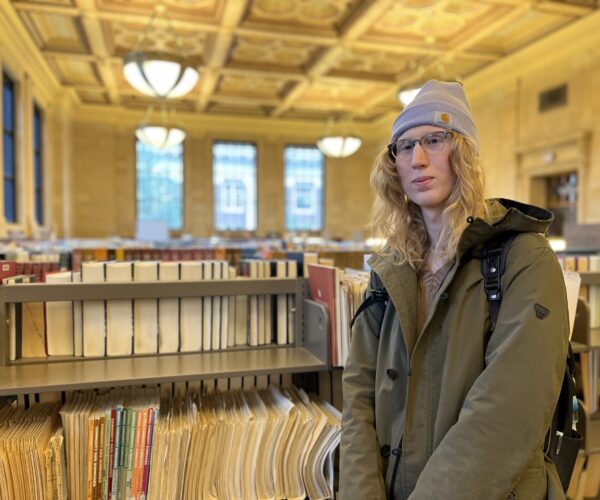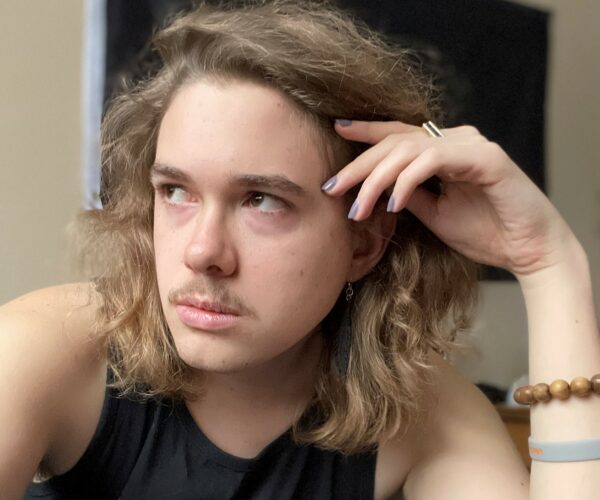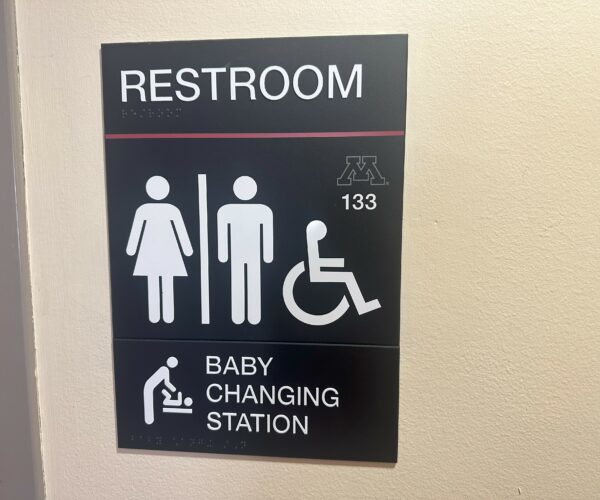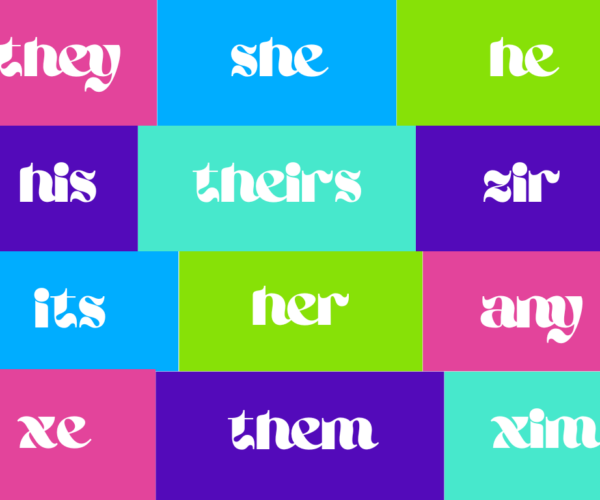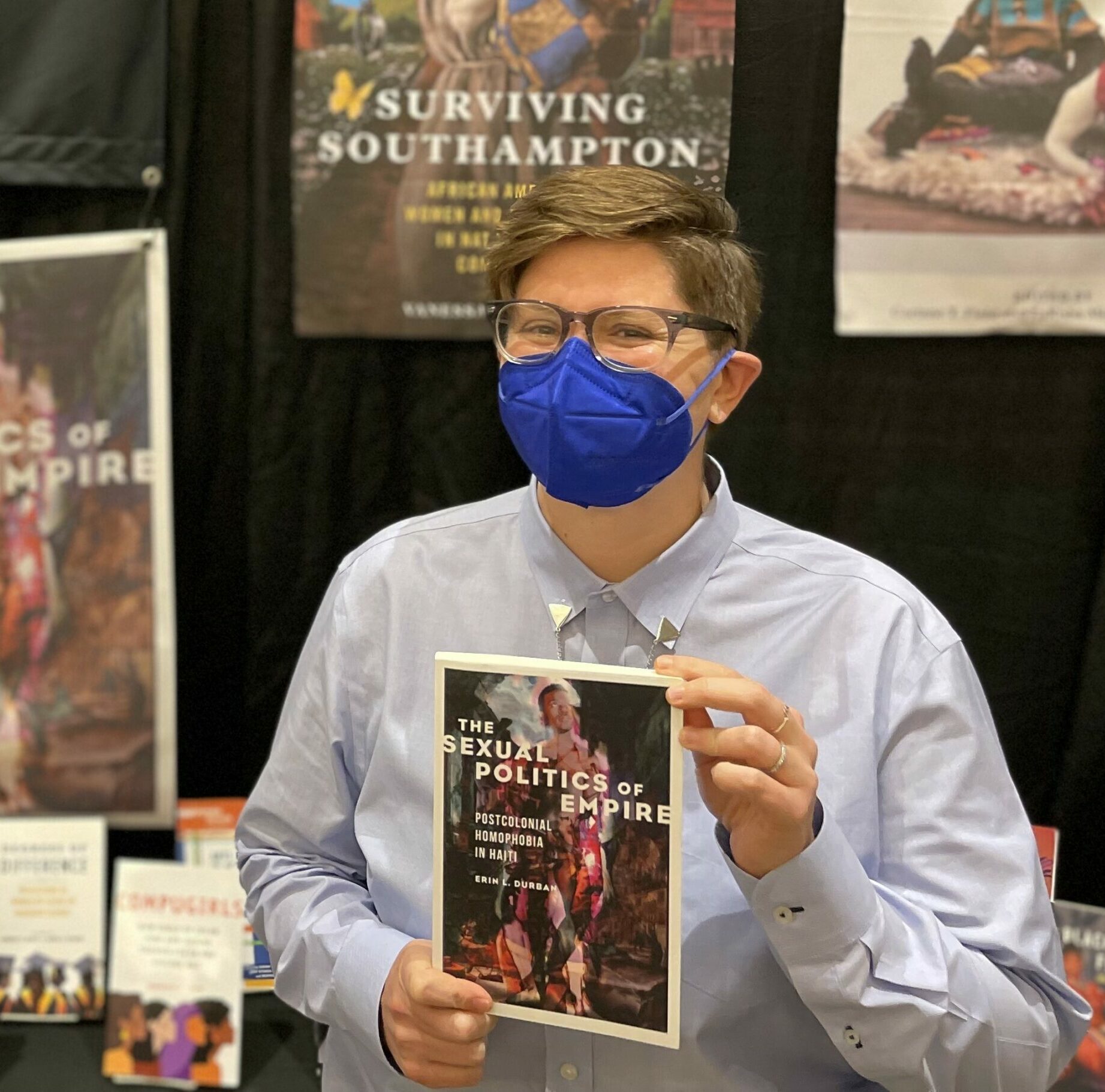Erin L. Durban is an associate professor of anthropology, affiliated with the departments of gender, women and sexuality studies and American studies, and co-chair of the Critical Disability Studies Collective. They are the author of “The Sexual Politics of Empire: Postcolonial Homophobia in Haiti” (2023). For most of their life they identified as genderqueer, and now adopt the terms nonbinary and queer.
“A professor at Emory invited me to come talk about the book with the students in her sexualities studies course. That professor is Alix Olson, who is also a poet and spoken word artist. When I was a queer teenager and college student, I used to sneak into bars and listen to Alix Olson perform. I got her CDs and books and traded them with friends. It was meaningful for me when I was young to see a queer person, who I realize now is not that much older than me, doing these creative things in public. She was loud and bold and not at all like the sad representations of queer people in the media that was easy to access.
When I was coming out, there were a lot of big things happening. Ellen DeGeneres came out on television and then there was extensive coverage of Matthew Shepard’s murder. In books and movies, most of the representations of queerness were depressing—suicide and unrequited love. So it sucked. But through my school’s poetry club, I learned about Alix Olson, and thought ‘Oh,cool, you’re amazing!’ So, to have this same person reach out to me decades later was a trip! This person who I really liked and looked up to when I was younger invited me to talk about my book in a queer studies course with college students, who are the same age now as I was when I was sneaking into bars to find some sense of connection.
This experience reminds me of those TikToks where its like ‘can you imagine your life now?’ When I was in high school, I got kicked out of my house for being queer. So many things were uncertain. I could never have imagined my life now—being in a long-term committed relationship with another queer person, who is also a professor, having a kid together, and being a professor of queer studies. I mean, this isn’t like a specific moment of queer joy, but it’s a realization that so many things changed historically in my lifetime that enabled me to have a fulfilling, amazing life. Even though there are a lot of terrible things happening still, and more right now, there’s still some space that has opened up.
In my day-to-day life, I focus so much on the struggle that people are still in—because there is so much work to do for us all to get free. I spend so much time thinking about all of that work to do that I forget to appreciate the joy of having this amazing life where I get to conduct interesting intersectional and transnational research about gender and sexuality. And I get to teach queer and trans studies at a university and talk to young people who are really interested in learning more about that. I appreciate that the invitation from Alix Olson made me think about how great it is to have the privilege to have intergenerational conversations on these important topics. They’re life-saving and world changing.”
This interview has been edited for length and clarity.
Interview conducted by Marena Reich.
